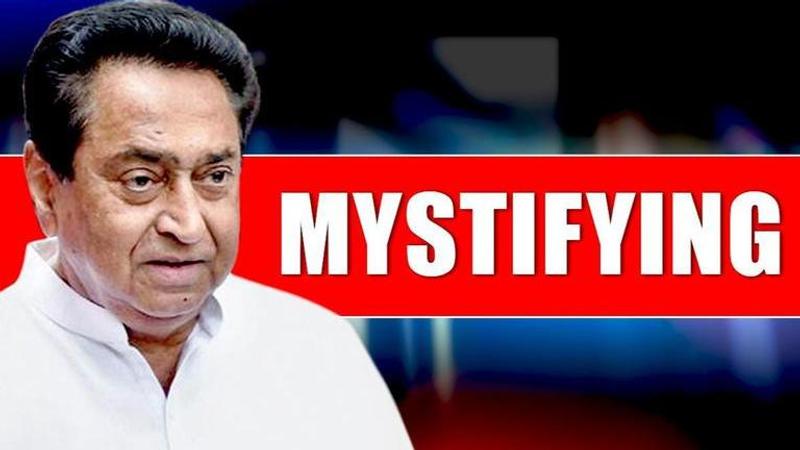Published 19:57 IST, February 17th 2020
Doesn't compute: MP govt admits 'no CAA-NPR link', hence CM Kamal Nath won't implement NPR
As per a press release, Madhya Pradesh CM Kamal Nath officially declared that the National Population Register (NPR) will not be implemented in the state.

Madhya Pradesh Chief Minister Kamal Nath has officially declared that the National Population Register will not be implemented in the state. An official statement issued by the Madhya Pradesh Congress Committee on Monday revealed this. Intriguingly, the statement itself acknowledges the fact that there is no connection between the NPR and the Citizenship Amendment Act. Despite this, the Congress party has provided no explanation as to their stance on the NPR.
Read the MPCC statement here:
“Madhya Pradesh Chief Minister Kamal Nath has made it clear that he will not implement the National Population Register for now. The NPR notification being talked about dates back to December 9, 2019. After this notification, the Central government has formally issued the Citizenship Amendment Act. This implies that the NPR notification has not been done via the CAA. This has been done using rule 3 of the 2003 Rules of the Citizenship Act 1955. Despite this, the CM is clear that the NPR will not be implemented in MP.”
What is the NPR?
First prepared in 2010 and updated in 2015, the NPR is a register of usual residents of the country being prepared at the local (village/sub-town), sub-district, district, state and national level under provisions of the Citizenship Act 1955 and the Citizenship (Registration of Citizens and Issue of National Identity Cards) Rules, 2003. It is mandatory for every usual resident of India to register in the NPR. Under the NPR, a usual resident is defined as a person who has resided in a local area for the past six months or more or a person who intends to reside in that area for the next six months or more.
Opposition to NPR
Addressing a press conference in December 2019, Union Environment Minister Prakash Javadekar declared that the Cabinet had approved the updation of NPR along with the house-listing phase of Census 2021 from April to September 2020. The Centre sanctioned over Rs.8,500 crore for this purpose. Stressing that NPR had nothing to do with the National Register of Citizens, he recalled that the Congress-led UPA government too had executed the NPR process in 2010.
Subsequently, the state governments of Kerala and West Bengal put forth their opposition to the NPR. The opposition parties alleged that the new questions inserted in the NPR survey hinted at a linkage with the NRC and CAA. Meanwhile, the Ministry of Home Affairs clarified that no individual needed to furnish any document at the time of the NPR survey.
Updated 19:57 IST, February 17th 2020




